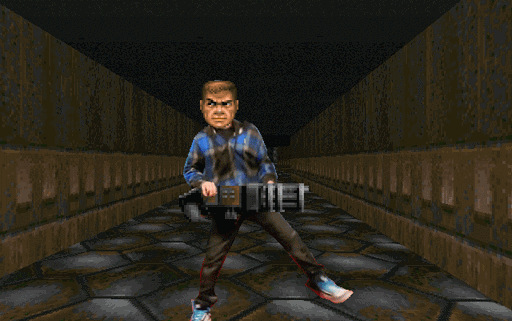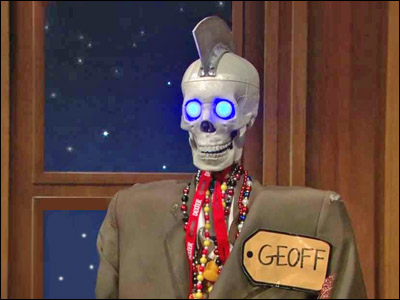
Buying is owning, though. In this case, you own a license to access Sony’s media on several conditions.
That’s not real ownership. If they can come in and take the stuff you bought away at any time, you don’t own it. If you own something, you should be allowed to make a copy of it and share it with your friends.
You own a limited access license. It’s not a hard concept to understand.
(Media) corporations want to screw you over and extract as much money as possible out of you, it’s not a hard concept to understand.
I agree. What you’re saying doesn’t contradict me at all.
The arguments you provided earlier are the exact same arguments a media corporation would make. I know that technically you own a restrictive af license to watch the content, but in reality, it’s pretty hard to call this ownership. Corporations hate the concept of people owning stuff. If they can sell this restrictive garbage as ownership, they can set a new standard and use it to further destroy ownership of media. The saddest part is that it works. Best Buy already plans to stop selling Blu Rays. This is the beginning of the destruction of freedom and media ownership. We really shouldn’t be arguing over this minor BS, instead, we should all agree that piracy is absolutely justified when media corporations keep getting greedier and greedier.
Description isn’t advocacy. I’m not “making an argument” because there’s no argument to be made. It’s a fact that Sony only sells limited access licenses on the Playstation Store. Yeah, we can both agree that it’s BS and pirating is better, etc., but putting out misinformation that people ever owned that media to begin with accomplishes nothing.
Two things can simultaneously be wrong.
Interestingly enough in this case only one thing is wrong:
You
ROFL… whatever you say kiddo.
I think what they’re saying is the meme makes logical sense even if both things are wrong. The contrapositive (a logical equivalent) is “if piracy is stealing, then buying is owning”. That’s a statement that I bet you agree with and it means the same thing.
Piracy is stealing. Period.
Nothing is stolen in digital piracy.
Cool. So developers should just stop paying their programmers because some random kid on the internet thinks it should all be free for the taking.
Then “buying is owning”. I think you think I’m making a disagreement when I’m just trying to clarify the statement.
Because one is true, doesn’t mean the other is. As I said- BOTH can be wrong.
Cool. Then you agree with the meme
Again, BOTH can be wrong.
No. You’re wrong. It cantn’t.
So, it is good what they did?
there will be a high-profile class action lawsuit, lawyers will get paid. those that ‘bought’ content that got deleted will get a $10 voucher for more digital content.
When it comes to lawsuits, companies just look at it from a economic perspective.
How much will it cost to do nothing
How much will it cost to do something and pay for the change and pay off customers as little as possible.
They don’t care about what is right or wrong, what is moral and what is not, what laws to follow and what laws to break … all they care about is either saving money or making money.
If they could justify crushing hundreds of little puppies because it could save money for the company … they’d do it and launch a marketing campaign to tell us all that it is acceptable.
Ha! Every one of their customers agreed to an arbitration clause and, I bet, even protects Sony from this exact situation.
Remember you don’t own anything. Just a license to use the media however they see fit.
Piracy ftw!
This is how most digital media works. You’re not buying the media, you’re buying a license for the media. Unfortunately, usually there’s a clause in the EULA about how the license can be revoked at any time.
You’re right, but that is a bullshit system that can easily disenfranchise the customer, and people are right to be upset about it.
Correct. It’s just a lot harder to revoke on physical media.
It’s not just harder. It’s impossible. Physical media is yours, and the license to view is not revocable. You do own the media.
Many games have online DRM, so even if you have them on disk, one day they will stop working.
Only on PC. And pc games don’t really have physical releases. On console this isn’t a thing unless the game requires an online server because it’s a multiplayer game
(Within the limits of IP laws. In some countries, making a personal backup of a DVD is an illegal act. Breaking DRM to do so may be a separate illegal act, again depending on jurisdiction. Neither is immoral of course, but that doesn’t stop lawmakers and judges from kissing the slimy boots of corporate lobbyists.)
I once lost a game from my ps library, just vanished. I still had the saves in my hard drive. So I called PlayStation who said it could have been a network glitch from the update, but since they lost any record of the purchase and I had made it years earlier, so I deleted the email, I never got my game back. That’s why I despise digital Games. Sony can’t walk in my house and take my physical game, but you break a rule or there’s a glitch and suddenly Sony can steal back every game you bought
protip: don’t delete receipts.
most email storage these days is so ridiculously huge, there’s no reason to delete those emails. make a folder for them (Playstation receipts, Steam receipts, etc).
that said, physical media is on it’s way out. i’d be surprised if the next gen of systems is even offered with a disc drive. at this point, most games are way more data than a Blu-Ray can hold.
Physical media really doesn’t help, because many games are delivered with bad bugs. These are fixed by updates. Unless you can actually download and archive the updates, reinstalling a deleted/corrupted game from backup media alone is impossible.
What is needed is a consumer bill of rights that requires companies to provide the purchased game with the latest update to the buyer upon request should they abandon it. If the game requires a server, that software code should be made public domain. An abandoned online game’s copyright should also be voided. That would allow the gaming community to legally provide updates and servers for continued use.
Another problem with physical media is games are quickly becoming, and often already are, bigger than a disc can hold. Even a dual layer UHD-Blu-ray is “only” 100gb.
At this rate next gen consoles are gonna have to follow Nintendo and go back to cartridges if they wanna keep physical media an option. Not that I’m opposed to that.
Boot licking victim blaming at its finest. What about Sony’s responsibility not to steal your shit? Responsibility for the consumer, never the corporation.
Nowhere did they victim blame, they just gave a tip
No idea where you got that from…
deleted by creator
Well yeah, this behavior was completely foreseeable. Obviously you could take to the high seas, but if you want to legally own a copy of media, buy a physical copy.
Yeah. Its worth remembering that tv/movies tend to have MUCH stricter distribution rights. Generally speaking, a purchased game is available for the lifetime of the service (whether it is playable depends on backend stuff). Whereas, if Discovery says “Get our sexy walrus off your service” you lose it instantly*
Its one of the reasons that I generally don’t see the point in buying “digital media” outside of special circumstances. I am either going to “rent” it (either pay a rental fee or have a subscription) or get the blu-ray (… if available).
*: Fun “fact”: This is speculated to be why Sony’s backwards compatibility is such a mess. During the PS1 and PS2 era, they likely were making distribution deals closer to music/movies than the (modern) video games. That is why you have such insanity like the digital version of Tomba 2 (I think) only being playable on a PSP, not a Vita or a PS3. And other weird ass messes because of how distribution rights and contracts were passed around. Whereas Microsoft “started” with software licensing agreements and have a LOT more flexibility for the XBOX/PS2 era.
If it’s not on your hard drive it’s not yours.
We all thought it was, and they sold us on it. Now we see the truth.













